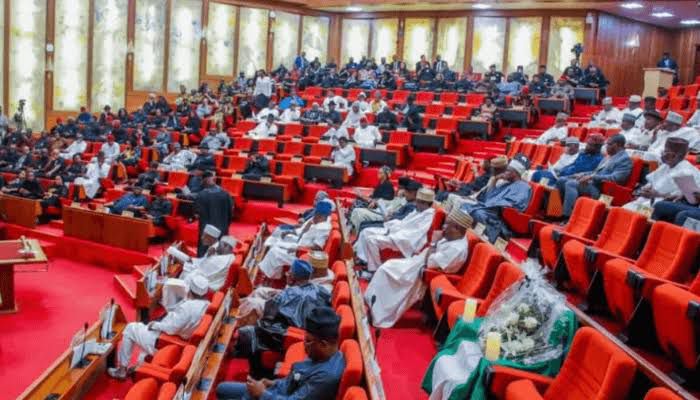National Assembly Probes Rise of Ponzi Schemes Linked to Cryptocurrency
The Nigerian Senate has initiated a wide-ranging investigation into the growing menace of Ponzi schemes across the country, spurred by the recent downfall of Crypto Bridge Exchange (CBEX)—a digital investment platform accused of defrauding Nigerians of over ₦1.3 trillion.
Described as one of the most devastating financial frauds in Nigeria’s history, lawmakers attributed the surge in such scams to lapses in regulatory enforcement and inadequate financial oversight. They also warned that the social consequences—including a rise in suicide cases and a deepening distrust in formal financial institutions—pose serious threats to the country’s stability.
The motion to investigate the issue was jointly sponsored by Senators Tokunbo Abiru (Lagos East) and Osita Izunaso (Imo West), and received strong bipartisan support. Lawmakers unanimously condemned the failures that allowed CBEX and similar platforms to operate unchecked.
While presenting the motion, Senator Abiru explained how CBEX capitalized on regulatory gaps involving key agencies like the Central Bank of Nigeria (CBN), Securities and Exchange Commission (SEC), the Nigerian Financial Intelligence Unit (NFIU), and the Economic and Financial Crimes Commission (EFCC) to deceive millions of investors.
“This is not just about CBEX,” Abiru said. “It’s part of a troubling trend that began with MMM in 2016, followed by MBA Forex in 2020. Nigerians are being victimized repeatedly.”
He highlighted the psychological and social damage left in the wake of these scams, including depression and suicide.
Senator Tahir Monguno (Borno North) described the situation as “deeply concerning,” emphasizing the need to tighten legislation and bring perpetrators to justice. Senator Sadiq Umar (Kwara North) lamented institutional negligence, stating, “Regulators need to stop sleeping on their responsibilities.”
Senator Solomon Adeola (Ogun West) raised alarms over unregulated fintech firms that operate under the guise of digital innovation. “The CBN must clarify what vetting mechanisms are in place and how many of these platforms are licensed,” he said.
Also weighing in, Senator Abdul Ningi (Bauchi Central) called for the National Assembly to exercise its constitutional powers under Sections 14 and 88 to demand accountability from regulatory bodies.
In a personal revelation, Senate President Godswill Akpabio shared that he too had fallen prey to a failed Ponzi scheme in Port Harcourt during the 1990s.
“This is history repeating itself, only now on a much larger and more destructive scale,” Akpabio said. “₦1.3 trillion vanished. Families are devastated. We must respond with urgency and determination.”
Akpabio endorsed proposals for public hearings and nationwide financial education campaigns. He stressed the need to act quickly to prevent more tragedies and to rebuild public confidence.
The Senate has tasked several of its committees—including Capital Market; Banking, Insurance and Other Financial Institutions; Anti-Corruption and Financial Crimes; and ICT & Cybersecurity—with leading the investigation. The committees are expected to hold public hearings and present their findings within four weeks.
The probe will extend beyond CBEX, covering Nigeria’s broader digital financial landscape to uncover structural weaknesses and recommend comprehensive legal and regulatory reforms.

